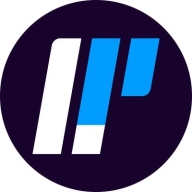

Logpoint and Grafana Loki compete in the log management and analysis category. Grafana Loki seems to have the upper hand due to its advanced features viewed as worth the investment.
Features: Logpoint stands out with customizable alerting, in-depth log parsing, and seamless integration with existing systems. It supports a wide range of deployment options. Grafana Loki offers efficient querying using the Loki language, seamless integration with Grafana dashboards, and an intuitive interface providing real-time insights and flexible visualization.
Room for Improvement: Logpoint users suggest better documentation clarity, more out-of-the-box analytics features, and streamlined system updates. Grafana Loki users point to the need for improved scalability options, more robust data retention policies, and enhanced user onboarding experiences.
Ease of Deployment and Customer Service: Logpoint is known for a straightforward deployment process and reliable customer service. Grafana Loki involves more initial configuration but is supported by comprehensive community resources for troubleshooting and user assistance.
Pricing and ROI: Logpoint offers competitive setup costs and is often favored by budget-conscious businesses for its favorable ROI. Grafana Loki carries higher upfront costs but justifies its price with substantial ROI through advanced analytical capabilities and integration benefits.


Grafana Loki is a powerful log aggregation and analysis tool designed for cloud-native environments. Its primary use case is to collect, store, and search logs efficiently, enabling organizations to gain valuable insights from their log data.
The most valuable functionality of Loki is its ability to scale horizontally, making it suitable for high-volume log data. It achieves this by utilizing a unique indexing approach called "Promtail," which efficiently indexes logs and allows for fast searching and filtering. Loki also supports log streaming in real-time, ensuring that organizations can monitor and analyze logs as they are generated.
By centralizing logs in a single location, Loki simplifies log management and troubleshooting processes. It provides a unified view of logs from various sources, making it easier to identify and resolve issues quickly. With its powerful query language, organizations can extract meaningful information from logs, enabling them to gain insights into system performance, identify anomalies, and detect potential security threats.
Loki's integration with Grafana, a popular open-source visualization tool, allows users to create rich dashboards and visualizations based on log data. This combination enhances the observability of systems and applications, enabling organizations to make data-driven decisions and improve overall operational efficiency.
Logpoint is a cutting-edge security information and event management (SIEM) solution that is designed to be intuitive and flexible enough to be used by an array of different businesses. It is capable of expanding according to its users' needs.
Benefits of Logpoint
Some of the benefits of using Logpoint include:
Reviews from Real Users
Logpoint is a security and management solution that stands out among its competitors for a number of reasons. Two major ones are its data gathering and artificial intelligence (AI) capabilities. Logpoint enables users to not only gather the data, but also to maximize both the amount of data that can be gathered and its usefulness. It removes many of the challenges that users may face in data collection. The solution allows users to set rules for collection and then it pulls information from sources that meet the rules that have been set. This data is then broken into manageable segments and ordered. Users can then analyze these ordered segments with ease. Additionally, LogPoint utilizes both machine learning and AI technology. Users gain the ability to protect themselves from and if necessary resolve emerging threats as soon as they arise. The AI sets security parameters for a user’s system. These act as a baseline that are triggered and notify the user if anything deviates from the rules that it set up.
The chief infrastructure & security officer at a financial services firm writes, “It is a very comprehensive solution for gathering data. It has got a lot of capabilities for collecting logs from different systems. Logs are notoriously difficult to collect because they come in all formats. Logpoint has a very sophisticated mechanism for you to be able to connect to or listen to a system, get the data, and parse it. Logs come in text formats that are not easily parsed because all logs are not the same, but with Logpoint, you can define a policy for collecting the data. You can create a parser very quickly to get the logs into a structured mechanism so that you can analyze them.”
A. Secca., a Cyber Security Analyst at a transportation company, writes, “It is an AI technology because it is using machine learning technology. So far, there is nothing better out there for UEBA in terms of monitoring endpoints and user activity. It is using machine learning language, so it is right at the top. It provides that capability and monitors all of the user’s activities. It devises a baseline and monitors if there is any deviation from the baseline.”
We monitor all Log Management reviews to prevent fraudulent reviews and keep review quality high. We do not post reviews by company employees or direct competitors. We validate each review for authenticity via cross-reference with LinkedIn, and personal follow-up with the reviewer when necessary.